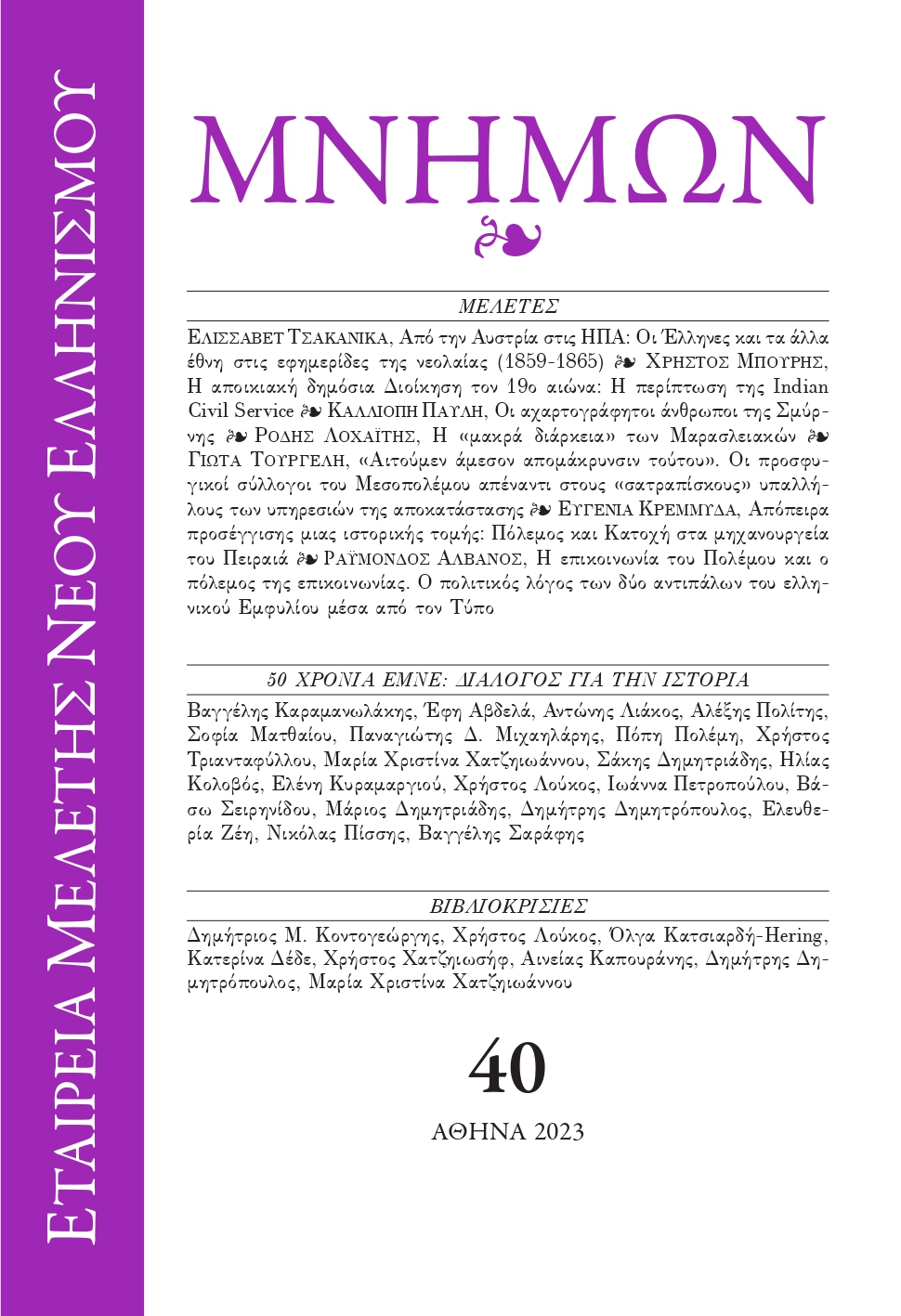«We request his immediate dismissal»: refugee associations against the oppressive employees of the resettlement agencies
Abstract
In the aftermath of the Asia Minor Catastrophe the Greek state was confronted with the unprecedented task of carrying out a resettlement program for 1.221.849 uprooted Orthodox Greeks. Theoretically, the newcomers had privileged access to the rehabilitation program implemented jointly by the Greek state and international organizations in the form of monetary, material and service support. Nevertheless, the National Schism, the economic recession and the political turmoil of the period influenced both the formulation and the implementation of the refugee policy. Refugees had to vie for resources that were constantly shrinking, an excessive bureaucracy with which they were unfamiliar and a hostile state apparatus which treated them as second-class citizens. Moreover, the immense size of the refugee population, its cultural diversity and their political affiliation with Venizelism affected not only their relations with the indigenous population but also their transactions with the civil servants (who were typically Old Greeks).
From the very beginning, refugee organizations that were formed based on the place of origin of their members became the vehicle of refugee adjustment to the new environment as well as the protectors of their interests against the natives. Their boards of directors undertook not only bureaucratic functions (issuing, for example, various refugee status certificates) and institutional roles (participation at various state committees) in the resettlement process, but also assumed the task to defend their members (among them many illiterates, Turkish-speakers and people deprived of networks and information) against the demands and the vagaries of the public administration.
The paper examines the initiatives developed by refugee organizations to compete with the chronic weaknesses of the state administration as well as their actions to overcome the obstacles, injustices and exclusions reserved for them by the employees of the rehabilitation services. It further aims to elucidate the role of the associations as pressure groups against the representatives of the rehabilitation services. At the same time, it analyzes the limits of their bargaining power in the whole rehabilitation process of the refugees.
Article Details
- How to Cite
-
TOURGELI, G. (2025). «We request his immediate dismissal»: refugee associations against the oppressive employees of the resettlement agencies. Mnimon, 40, 93–117. https://doi.org/10.12681/mnimon.39707
- Issue
- Vol. 40 (2023): Mnimon
- Section
- ARTICLES

This work is licensed under a Creative Commons Attribution-NonCommercial-ShareAlike 4.0 International License.
The copyright for articles in this journal is retained by the author(s), with first publication rights granted to the journal. By virtue of their appearance in this open access journal, articles are free to use (with the exception of the non-granted right to make derivative works) with proper attribution for non-commercial uses (licence Creative Commons 4.0). EKT/NHRF retains the worldwide right to reproduce, display, distribute, and use articles published in Mnimon in all formats and media, either separately or as part of collective works for the full term of copyright. This includes but is not limited to the right to publish articles in an issue of the Journal, copy and distribute individual reprints of the articles, authorize reproduction of articles in their entirety in another EKT/NHRF publication, and authorize reproduction and distribution of articles or abstracts thereof by means of computerized retrieval systems.


